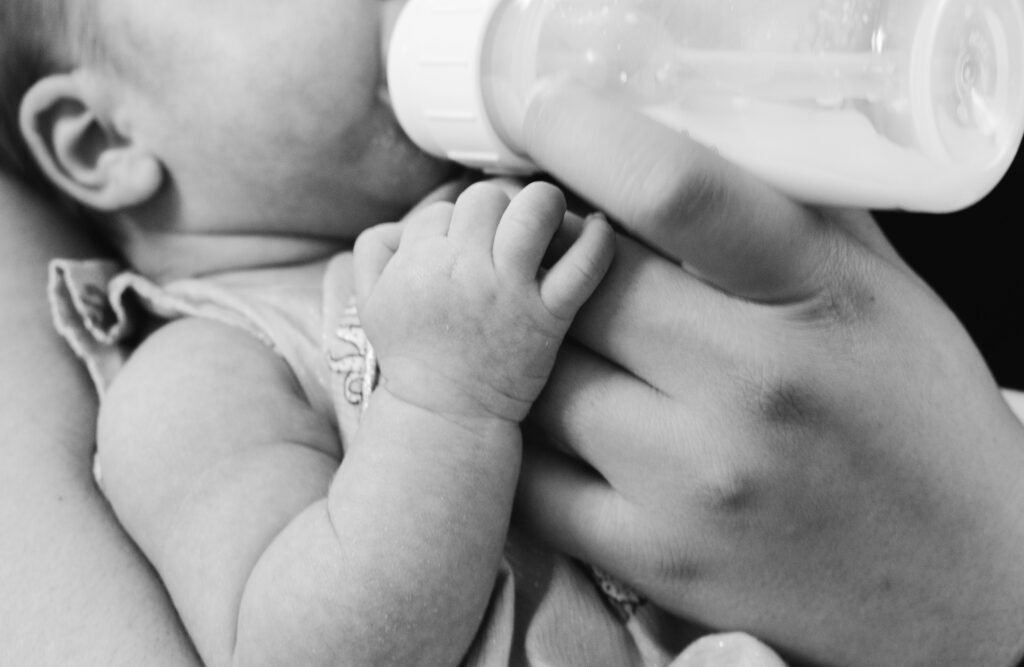- August 27, 2025
If you’re wondering, “Why is my newborn spitting up a lot?” you’re not alone. Many parents ask, “Do newborns spit up a lot?” and the answer is yes—spitting up is very common in infants. In fact, nearly 50% of babies experience frequent spit-up in their first few months of life. Whether you have a breastfed newborn spitting up a lot or a formula-fed baby, occasional spit-up is usually normal. However, if your newborn spits up a lot after every feed, you might be concerned about underlying issues. Let’s explore why this happens, when it’s a problem, and how to manage it effectively.
Table of Contents
ToggleWhy Do Newborns Spit Up a Lot?
Spitting up, also called infant reflux or posseting, occurs when milk or formula flows back from your baby’s stomach. This happens because the muscle between the esophagus and stomach (the lower esophageal sphincter) is still weak and underdeveloped. Since newborns spit up a lot due to their immature digestive systems, frequent spit-up is often harmless—as long as your baby is gaining weight and seems comfortable.
Common Causes of Excessive Spit-Up
• Overfeeding – A baby’s stomach is tiny (about the size of a cherry at birth!), so feeding too much at once can cause spit-up.
• Swallowing Air – Improper latching during bottle feeding or breastfeeding can lead to gas and reflux.
• Fast Milk Flow – A strong let-down reflex or fast-flow bottle nipple can make your newborn spit up a lot because they gulp milk too quickly.
• Lying Flat After Feeding – Putting pressure on your baby’s belly or laying them down too soon can trigger reflux.
• Food Sensitivities – Some babies react to dairy or soy proteins in breast milk or formula, leading to more spit-up.
• Pyloric Stenosis (Rare but Serious) – This condition, which causes projectile vomiting, requires medical attention.
When Should You Be Concerned?
While most spit-up is normal, consult your pediatrician if you notice:
• Forceful vomiting (spit-up shoots out several inches)
• Spit-up resembling coffee grounds (could indicate digested blood)
• Poor weight gain or refusal to feed
• Signs of discomfort, such as back arching, crying during feeds, or excessive fussiness.
• Green or yellow spit-up (could indicate bile)
• Spit-up persisting beyond 6 months of age
These symptoms could indicate GERD (gastroesophageal reflux disease) or pyloric stenosis, a stomach blockage that may require surgery.
How to Reduce Spit-Up in Newborns
If your newborn is spitting up a lot, try these evidence-based tips:
1. Adjust Feeding Techniques
• Feed your baby smaller, more frequent meals – Instead of large feeds, offer smaller amounts every 2-3 hours.
• Burp your baby frequently – Pause halfway through feeding to burp, then finish the feed.
• Use paced bottle feeding – Hold the bottle horizontally and let your baby control the flow to prevent gulping air.
• Try different breastfeeding positions – A more upright latch can help slow milk flow.
2. Keep Baby Upright After Feeding
• Hold your baby in an upright position for 20-30 minutes after feeding to help digestion.
• Avoid tummy time or vigorous play right after eating.
3. Check for Food Sensitivities
• If breastfeeding, consider eliminating dairy, soy, or caffeine to see if spit-up improves.
• For formula-fed babies, ask your doctor about hypoallergenic or anti-reflux formulas.
4. Avoid Tight Clothing & Overfeeding
• Loose diapers and onesies prevent putting pressure on your baby’s stomach.
• Watch for hunger cues (rooting, sucking hands) instead of forcing a full feed.
Spit-Up vs. Vomiting: What’s the Difference?
Spit-Up :
Gentle flow, often with a burp
Mostly milk, no discomfort
Happens shortly after feeding
Baby stays happy & relaxed
Vomiting :
Forceful, shoots out
May contain bile (green/yellow)
Can occur anytime, even hours later
Baby seems distressed or in pain
When Do Babies Outgrow Spit-Up?
Most babies spitting up frequently improve by 6 months of age, once they start sitting up and eating solids. By 12 months, nearly all babies outgrow reflux as their digestive system matures.
Myths About Baby Spit-Up



Final Thoughts
If your newborn spits up a lot but is happy, growing well, and has no concerning symptoms, it’s likely just a messy but normal phase. However, always trust your instincts—if something feels off, consult your pediatrician/neonatologist. With simple feeding adjustments and patience, most babies improve over time. By understanding why newborns spit up a lot and implementing these strategies, you can help minimize spit-up and keep your baby comfortable.








